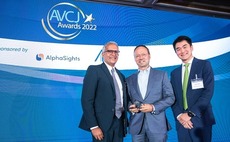
Corporate carve-outs: Seller's dilemma
Private equity investors expect to see more divestments by Asian conglomerates, but a torrent of new deals is unlikely. Much rests on when the seller is confident enough to pull the trigger
Negotiators on both sides clad in masks and gloves, temperature checks, windows open to allow maximum ventilation, obligatory handwashing, and at least two meters between individuals when seated. These were the conditions under which IMM Private Equity conducted due diligence on Korea Kolmar Holdings, which led to a $413 million acquisition of the conglomerate’s pharmaceutical outsourcing business.
Corporate carve-outs are challenging for private equity firms to transact even when they have access to the target asset and the seller is willing to do a deal. Joseph Lee, a partner and CIO at IMM, suggests there will be more divestments in Korea as conglomerates review their portfolios and take a more nuanced view of what is core versus non-core in a post-COVID-19 environment. However, don’t expect too much too soon, he warns. Most prospective sellers have plenty of cash on their balance sheets and could wait until valuations normalize.
A similar message comes out of Japan, another market in which private equity investors eye bloated conglomerates with interest. Yes, there are long-term trends that are likely to result in more carve-out opportunities. Yes, financial stress arising from the coronavirus outbreak should alter internal perceptions or what is non-core. However, the Japanese government’s stimulus measures will facilitate delays. Expect a few distress sales from overleveraged players, but not much more in 2020.
According to Hiroyuki Otsuka, a managing director in The Carlyle Group’s Japan buyout team, first Japanese conglomerates must fix their core businesses. Some will emerge from this stronger than others, resulting in a spate of M&A activity and industry consolidation. Most of the carve-out opportunities will come after that.
The latest edition of EY’s global corporate divestment study suggests impending activity in Asia Pacific. Of the 400 executives surveyed, 75% plan to divest assets within the next two years. More than half expect to get started within the next 12 months. These percentages are roughly in line with the global average. Just over 50% of the Asia-based respondents said they would need to raise capital in response to the potential impact of COVID-19 on their business and nearly two-thirds said they would look to reduce their debt loads through divestments.
Other factors motivating sale decisions include the need to raise capital for redeployment in technology investments and a desire to diversify supply chains.
At the same time, there is a general expectation that COVID-19 will widen the pricing gap between what sellers expect and what buyers are offering. The economic disruption caused by the pandemic has also made more than half of respondents uncertain as to which assets to divest.
Transaction timing and asset selection are crucial. Several PE investors note that it took years for some of the most attractive businesses to become available following the global financial crisis. Move too soon on an asset that is outside your comfort zone and you might regret it, they warn. Meanwhile, 72% of global respondents in the EY survey said they had previously held onto assets for too long. According to EY, companies that made divestments between 2008 and 2010 outperformed those that did not by 24 total shareholder return percentage points over the following eight years.
Resistance to more aggressive portfolio rebalancing was mainly driven by steep declines in valuations. Enterprise valuation to EBITDA multiples slipped below 7x in late 2008 and early 2009, having touched 10.9x 12 months earlier. It took another two years for them to climb back above 9x.
There are no guarantees that a post-COVID-19 world will follow global financial crisis patterns. Corporates must figure out at what point – and at what price – it pays to be bold.
Latest News
Asian GPs slow implementation of ESG policies - survey
Asia-based private equity firms are assigning more dedicated resources to environment, social, and governance (ESG) programmes, but policy changes have slowed in the past 12 months, in part due to concerns raised internally and by LPs, according to a...
Singapore fintech start-up LXA gets $10m seed round
New Enterprise Associates (NEA) has led a USD 10m seed round for Singapore’s LXA, a financial technology start-up launched by a former Asia senior executive at The Blackstone Group.
India's InCred announces $60m round, claims unicorn status
Indian non-bank lender InCred Financial Services said it has received INR 5bn (USD 60m) at a valuation of at least USD 1bn from unnamed investors including “a global private equity fund.”
Insight leads $50m round for Australia's Roller
Insight Partners has led a USD 50m round for Australia’s Roller, a venue management software provider specializing in family fun parks.








